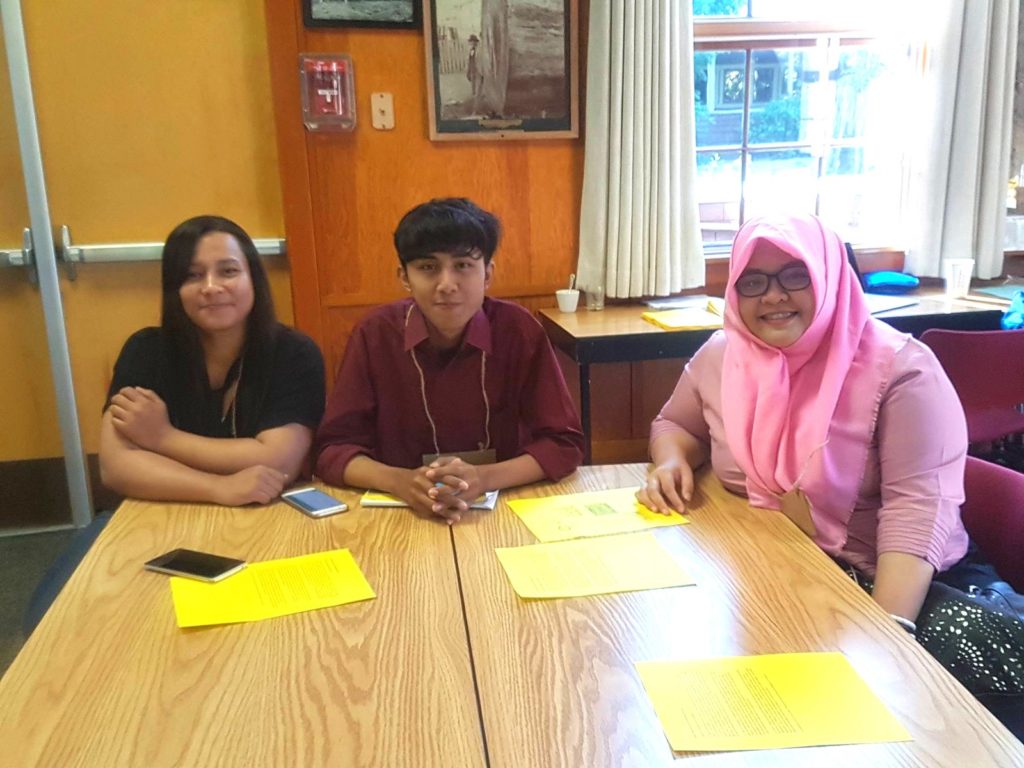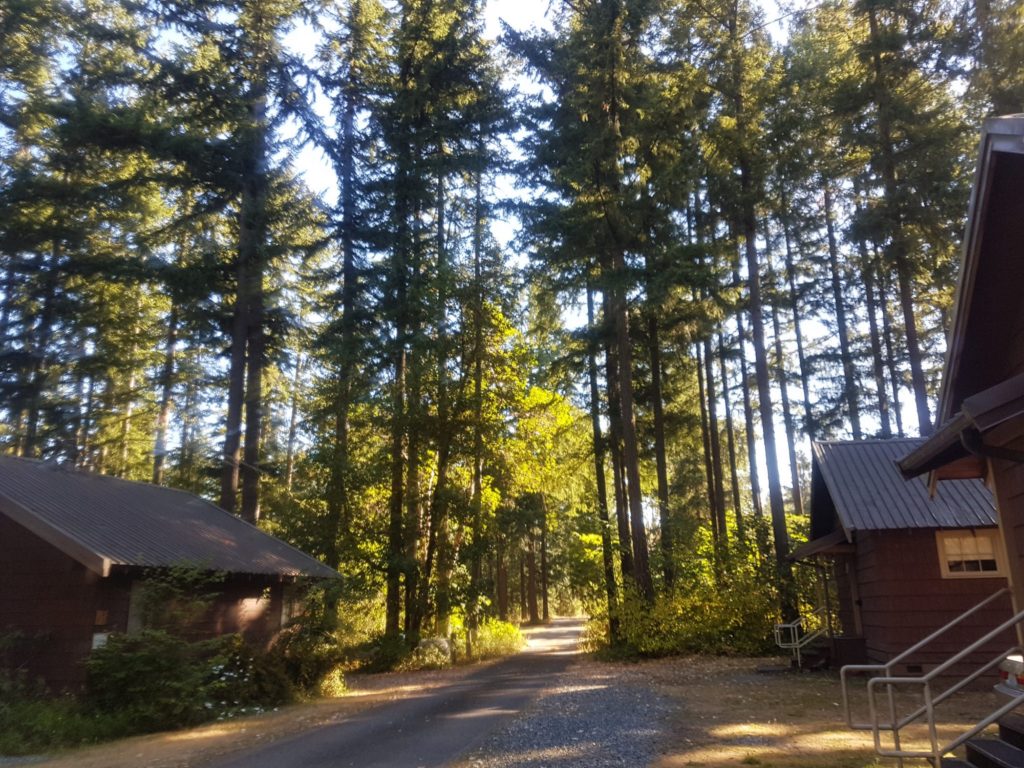
Ms. Sukma Impian Riverningtyas /©UN CC:Learn
Sukma is a 23-year-old from the Central Sulawesi province, engaging with youth to increase awareness of climate change. A while ago, she identified a lack of environmental knowledge and understanding of climate change among her community. Her concern encouraged her to take action and come up with Sekolah Avatar, an extracurricular school program focused on teaching children how to protect the environment from an early age.
Sukma also has launched an initiative, Youth for Climate Change, which brings young adults together to tackle climate change. Sukma herself embraces a climate-friendly behaviour: she uses reusable bags instead of plastic ones, upgrades her light bulbs, and reduces-reuses-recycles solid waste. The most important to her is to set an example for people to replicate these behaviors. At the Tribal Climate Camp (TCC), Sukma learned about community engagement and project formulation that she plans to integrate into her initiatives.
It is better to work collaboratively in preserving the nature. All organizations, all tribes, all countries, all of us are citizens of the Earth. All of us have to be responsible in taking care of it.” — she said.
Full interview below:

Ms. Sukma Impian Riverningtyas and her team at the Youth Leadership Camp for Climate Change 2017. /©UN CC:Learn
1. What issues are you trying to solve and how do you think you can contribute?
In my community, there is a lack of environmental education. I am trying to solve that. The impact of climate change is so big but some people still do not understand what climate change is — this is terrible. My friends and I believe that many adults do not understand climate change because they were not educated on this topic when they were in school. Therefore, my friends and I established an extracurricular environmental education programme for children in primary school called Sekolah Avatar. We aim to give basic understanding about how to protect our environment from an early age so that children can grow up remembering to protect their environment. We also organized Youth for Climate Change (YFCC) Sulawesi Tengah to engage youth concerned with climate change issues and to learn together on how to tackle this challenge.
2. How do you think you can address climate change?
As a young person, the way that I address climate change is by changing my personal behaviour from high carbon to low carbon activities. For example, replacing plastic bags with reusable bags to carry goods from the market and shop, upgrading lightbulbs, reducing-reusing-recycling solid waste, and most importantly by showing those behaviours to my friends and persuading them to do the same. Since I became the chairperson for Youth for Climate Change in Central Sulawesi, I have tried to show that leadership is not the same as having followers, it’s more like having partners. For youth, addressing climate change has become very important since we are the future generations of the world.

The three Indonesian students had a chance to present the projects they carried out as a follow-up to the training received through the Youth Leadership Camp for Climate Change 2017. /©UN CC:Learn
3. Can you briefly present your experience with the YLCCC?
During the 3-day Youth Leadership Camp for Climate Change (YLCCC), I learned about our carbon footprint, combatting climate change globally, changing “business as usual” behaviour into environmentally friendly behaviour. We also learned how to develop a communication strategy and campaigns to raise public awareness of climate change through short movies and posters. After the camp, my team implemented post-camp activities to disseminate our experiences and knowledge to other youth in our hometown.
4. How was your experience at the Tribal Climate Camp?
It was wonderful! I met native people from the Nisqually Tribe, visited their territory, ate their food, talked to them, and exchanged ideas. I also learned from the other indigenous people coming from North America and New Zealand. I got to learn about the way they formulate programs that contribute to the preservation of natural resources. During the TCC, we developed a vision and a mission to address climate change in our communities, building on an asset mapping. Through this exercise, I learned about defining the goals I want my climate change programme to accomplish, creating a strategic planning agenda, as well as establishing an evaluation method that could measure the success of my program. I also learned about many ways to promote community engagement, such as finding my core work/planning group and community to include the elders and work with youth, and to make sure that communities’ voices are heard and valued. I also learned about how to present an elevator’s pitch, which is key to getting people interested in a topic, in this case, climate change.
During the camp, I presented my team’s project. For three months, we engaged youth in Central Sulawesi to increase awareness of climate change through youth discussions, visiting elementary schools to provide environmental education. We also collaborated with other youth organizations in town to roll-out a seminar and a workshop. At TCC, I also shared about my experience on how to spread the news using a communication strategy (video and poster). We used social media like Facebook, Instagram, and YouTube for effective outreach.

Ms. Saraswati Siahaan, Mr. Aditya Pradana, and Ms. Sukma Impian Riverningtyas embarked on their journey to the Tribal Climate Camp at the University of Washington Pack Forest Conference Center in the United States. /©UN CC:Learn
5. What’s your biggest take away from participating in the Tribal Climate Camp?
Participating in the Tribal Climate Camp has taught me so many things culturally, environmentally, socially, and politically. My biggest take away from this event is the way the Nisqually Tribe pledge to protect the water and watershed of their Nisqually homeland. I saw their spring is clean and clear as crystal. I witnessed how they take care of their fish. I am amazed by their consistency, perseverance, and spirit to protect the environment. I want to share this lesson with my friends in my hometown and I hope this could inspire them too to improve and develop our climate change youth program.
Ms. Sukma Impian Riverningtyas was one of the three young leaders to receive the “Tribal Camp Award” and participated at the Tribal Climate Camp (TCC), hosted near Seattle, United States from 30 July — 4 August, 2017.

Tribal Climate Camp was held in Eatonville, United States. /©UN CC:Learn

